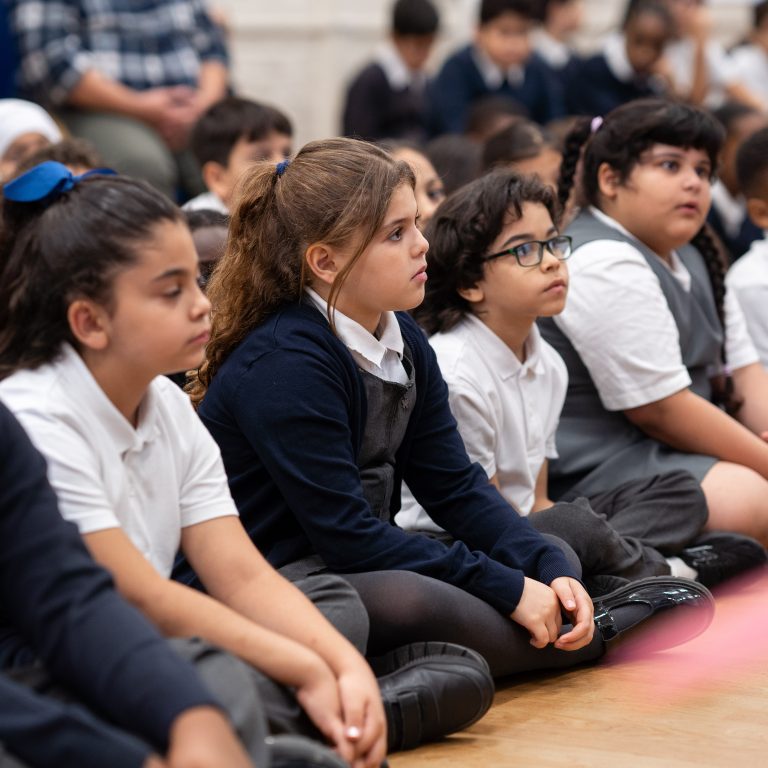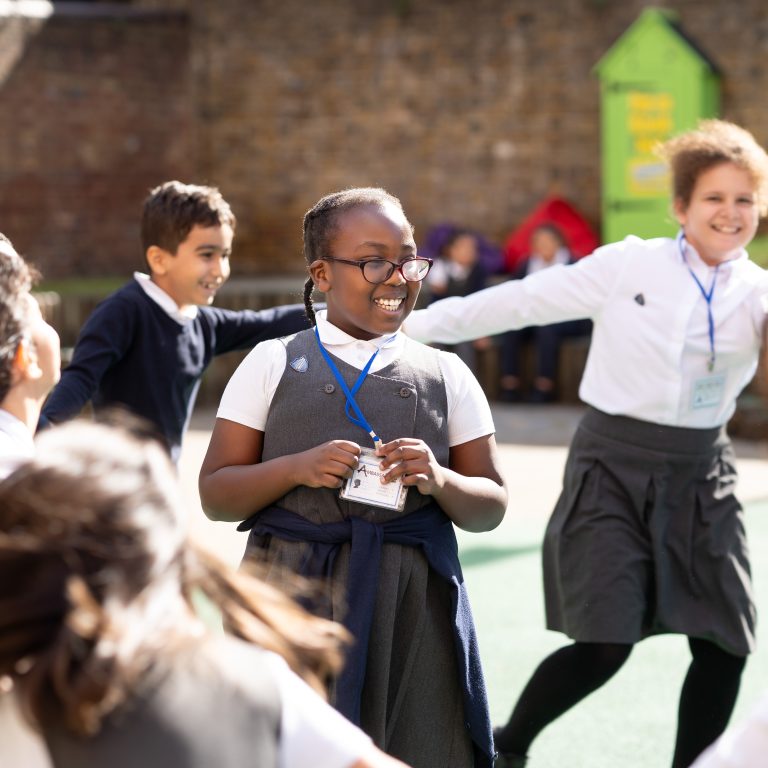| Remote Education
In the event of a total or partial lockdown, the school will offer immediate access to remote education for all pupils who are required to remain at home. If there is not a local lockdown, but a single class or bubble needs to self-isolate, the school will immediately implement remote education for that group.
All remote education will be delivered in line with the school’s Remote Education Policy. |
| Teaching and Learning |
All pupils will have access to high-quality education when learning remotely.
The school will use a range of teaching methods to cater for different learning styles.
When teaching pupils who are working remotely, teachers will:
- Set assignments so that pupils have meaningful and ambitious work each day.
- Deliver a planned, coherent and well-sequenced curriculum which allows skills to be built incrementally. • Provide frequent, clear explanations of new content through high-quality curriculum resources, including through the use of educational videos and on-line resources.
- Assess progress by using questions and other suitable tasks and be clear on how regularly work will be checked. • Adjust the pace or difficulty of what is being taught in response to questions or assessments, including, where necessary, revising material or simplifying explanations to ensure pupils’ understanding.
- Plan a programme that is of equivalent length to the core teaching pupils would receive in school, ideally including daily contact with teachers.
- Provide feedback in line with the policy.
All provisions for remote education will be subject to the class group’s age, ability and/or any SEND.
In exceptional circumstances, the school may reduce its curriculum offering to enable pupils to cope with the workload – the Headteacher will assess this need, keeping pupils’ best interests in mind, and will not take the decision lightly.
Teachers will continue to make use of formative assessments throughout the academic year, e.g. quizzes.
Devices (such as laptops or i-pads) will be provided for disadvantaged pupils who do not have access to suitable devices at home. Free Wi-Fi can also be made available for those families without internet access.
Arrangements will be made for parents, who request paper versions of learning packs, to collect packs and return completed packs to school. |
| SEND provision |
Teachers will ensure lessons are inclusive for all pupils and can be adapted to account for the needs of disadvantaged pupils and pupils with SEND.
Home learning packs containing concrete resources, developed in school, will be sent home with the pupils with EHCP’s. These pupils will also have an additional daily live learning with their LSA.
The SENCO will make weekly check-ins with the parents of pupils with a high level of need. |
| Safeguarding |
| Child Protection Policy
Child Protection Policy: COVID19 addendum |
Ensuring safeguarding arrangements remain effective while the school is partially closed is a key priority.
Our Child Protection and Safeguarding Policy was updated during the national lockdown to include provisions for keeping pupils safe during the coronavirus pandemic – we will continue to follow these procedures for pupils who remain at home, where appropriate, until all pupils are able to return to school. |
| Procedures |
We will continue to ensure that:
- The best interests of pupils always come first.
- If anyone in the school has a safeguarding concern about a pupil, they act immediately.
- A DSL or deputy DSL is always available.
- Unsuitable individuals are not permitted to work with pupils or come into contact with pupils whilst on site or via our learning platform.
- Pupils who remain at home are protected when they are online.
- Children are aware online safety and what to do if they encounter a potential risk. This helps us to identify potential risks and act at the earliest possible point.
|
| Well-being |
| Support for families |
At St Augustine’s, we are committed to supporting the emotional health and well-being of our whole community. We know that everyone can experience life challenges that can make us vulnerable and, at times, anyone may need additional emotional support.
We have a dedicated area on the website to provide support for parents.
Weekly ‘well-being calls’ will resume for all vulnerable children.
External support from a range of providers, including Anna Freud Centre and the Early Help Inclusion Pilot will continue either in person or through Teams.
Support from the SENCO for children with special educational needs:
- The school SENCO/ class teacher/ LSA will make contact with parents to support in establishing routines, explaining the use of equipment and other online activities/ providing resources that will help their children with their learning
- The SENCO or LSA will explain the use of the resource packs for SEND pupils
The SENCO will make additional well-being calls to the families of children with an EHCP (this includes those families whose children’s statements are pending). We will also signpost other professionals to families who require additional support:
- Cate Summers (Consultant Educational Psychologist)
- Educational psychologist
- CAMHS
|
| Pupils |
Bespoke online safety lessons will be delivered during periods of remote learning.
Weekly ‘well-being’ calls will be made to all families by the class teacher and other members of the class team Regular class well-being sessions / class meetings will be delivered through Teams |
| Staff |
Plans have been, and will continue to be, developed alongside staff. Opportunities to review systems and ways of working are regularly reviewed with staff.
Teaching and support staff will be organized into teams. All teams are led by a member of the SLT who checks in weekly with team members either via phone, a group text, or Teams/Zoom.
The SLT will meet weekly via Zoom
Staff will be reminded of well-being resources available to support for all staff. |
| Food Provision |
| Benefit related FSM & Universal FSM |
We will ensure measures are in place so that meals can be prepared and served safely for FSM and UIFSM pupils who remain on site. |
| Benefit related FSM |
Those pupils who are unable to attend will be given vouchers as an alternative to an in-school FSM. |
| Communication |
| Parents |
The school will communicate its plan for a local lockdown with parents, including whether it will remain open to vulnerable pupils and children of critical workers, or if remote working will be applicable for all. All relevant stakeholders will be kept up-to-date with the circumstances of the local lockdown and how it affects the school as they develop.
We will do this via:
- Text
- The website
- Parentmail
- Messages on Teams
- Phone
|
| Making contact |
If any member of the school community wishes to discuss any concerns relating to the school’s provision during this period, they should contact the following people as appropriate:
- Staff – their line manager, an Assistant Headteacher or Headteacher
- Pupils – their class teacher or other member of their teaching team
- Parents – the class teacher, Phase leader or an Assistant Headteacher in the first instance
|
| SLT |
|
| Site manager |
|
| Wraparound Childcare |
| Breakfast club |
To avoid pupils from a variety of bubbles mixing, pupils who attend breakfast club will be socially distanced. Thorough hand washing and cleaning routines will be in place. |
| Afterschool provision |
The school will continue to operate paid after school club. The risk of infection will continue to be decreased by organising children into Year groups.
Handwashing routines will continue as they do during the school day.
Children will be outside as much as possible. |
| Educational visits |
| Trips |
Any educational day visits must be conducted in line with relevant coronavirus (COVID-19) secure guidelines and regulations in place at that time. This includes system of controls, such as keeping children within their consistent groups and the COVID-secure measures in place at the destination.
We will undertake full and thorough risk assessments in relation to all educational visits to ensure they can be undertaken safely. As part of this risk assessment, we will need to consider what control measures need to be used and follow wider advice on visiting indoor and outdoor venues. We will consult the health and safety guidance on educational visits when considering visits.
Visits will be considered on a case-by-case basis. |


